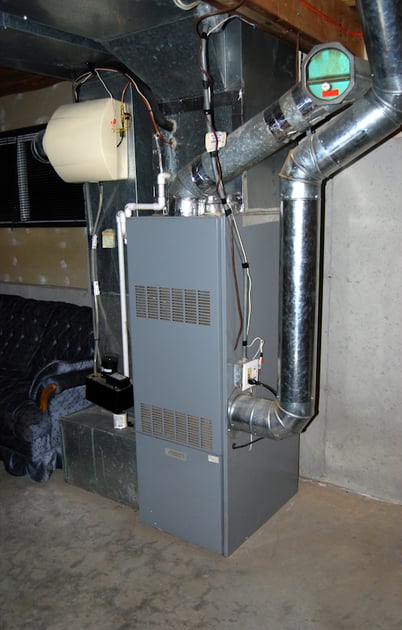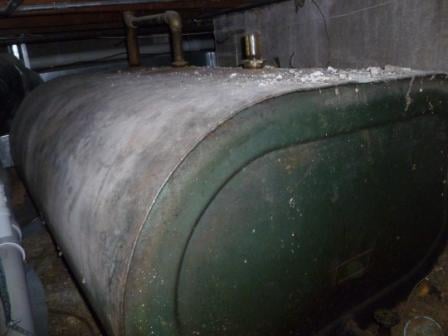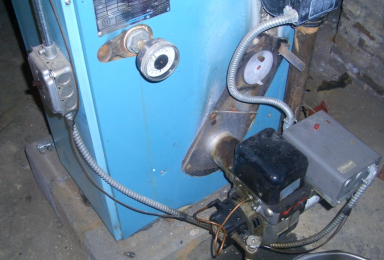Winter Heating Oil Additives and Other Steps For Your Heating System
This blog is for the portion of the country that still uses heating oil for their homes. That's about 6 million households across the country burning...

"Sludge" is a phenomenon that you see with any kind of petroleum that’s left in storage for extended periods of time. As time passes and petroleum is exposed to simple things like air, light, heat and catalytic elements, chemical reactions will happen in any heating oil, causing larger and large molecules to form until they turn into home heating oil sludge. This sludge sinks to the bottom and collects in the heating oil storage tank.
 The heating oil sludge you find at the bottom of your oil tank is a combination of rust from the tank, dirt and debris, microorganisms that grow in the tank, and an amount of heavy-end fallout from the fuel itself. Professionals who service boiler and furnace heating systems will tell you that they frequently come across sizable volumes of sludge in heating oil tanks. These same professionals will tell you that it didn't used to be that way. Some of them, who may have been in the industry for decades, can recall when oil-fired systems would run for years and years without even an oil filter, and yet have no problems like this. If you're wondering why this is the case, all you have to do is take a look at the heating oil itself. Heating oil in the 1970s used to be a beautiful clear yellow color similar to cooking oil. Heating oil today is much darker, a tell-tale sign that it contains a lot more residual heavy molecules. Simply put, today's heating oil is a lot more likely to contain a significant portion of the residual waste oil that didn't used to go into it way back when. And that helps create the heating oil sludge issue that customers have to deal with.
The heating oil sludge you find at the bottom of your oil tank is a combination of rust from the tank, dirt and debris, microorganisms that grow in the tank, and an amount of heavy-end fallout from the fuel itself. Professionals who service boiler and furnace heating systems will tell you that they frequently come across sizable volumes of sludge in heating oil tanks. These same professionals will tell you that it didn't used to be that way. Some of them, who may have been in the industry for decades, can recall when oil-fired systems would run for years and years without even an oil filter, and yet have no problems like this. If you're wondering why this is the case, all you have to do is take a look at the heating oil itself. Heating oil in the 1970s used to be a beautiful clear yellow color similar to cooking oil. Heating oil today is much darker, a tell-tale sign that it contains a lot more residual heavy molecules. Simply put, today's heating oil is a lot more likely to contain a significant portion of the residual waste oil that didn't used to go into it way back when. And that helps create the heating oil sludge issue that customers have to deal with.
Normally, this sludge wouldn’t be an issue, in and of itself. Except this sludge can contribute to a number of problems, can hurt the efficiency of your heating system, and even be a contributing factor to your heating system breaking down completely. That’s no good.
Sludge can be a problem when winters are tough (we’ve seen a few of those recently across the country) and it can build up even if your heating oil level is low.
Heating oil sludge isn’t commonly a problem until your oil level gets low. As the tank gets closer to empty, some of that sludge in the oil tank can get pulled up into the supply line. If it doesn’t clog the supply line, it can go to the filter and plug it partially or completely. At best, that will reduce your system’s efficiency and cost you more money than you need to be paying. At worst, your whole heating system could seize up and shut down completely, which ends up costing you way more money.
Heating oil professionals have commented that it’s really kind of an ironic situation, a homeowner getting themselves into this kind of really expensive situation, all because they wanted to save a little money on the front end by putting off a heating oil delivery and letting their tank run too low. Penny wise but pound foolish, unfortunately.
Fortunately, there are some simple preventive maintenance solutions that can keep these sludge problems at bay.
The first one is simply to fill your heating oil tank before it gets too low. Remember when dad (or mom) told you not to run your gas tank all the way to empty before filling up? Same concept. Don’t let your home heating oil supply get close to running out before you schedule your oil delivery. More oil in the tank lessens the chance of sludge shutting your system down.
Another simple solution is to add a heating oil treatment to your tank, right before your next delivery. But what kind?
You want a home heating oil treatment that contains a sludge dispersant. Over time, the dispersant will act to break down the sludge in your oil tank and draw it up into your fuel. Only now, it won’t clog your lines and filters - it will pass through harmlessly and burn with the rest of your heating oil (dispersants break down and disperse sludge in very small pieces).
Chances are, if you add a heating oil treatment now, before the winter season starts, you may have a completely clean tank by the end of the season.
Image Credit: By Versageek (Taken by Versageek) [GFDL (http://www.gnu.org/copyleft/fdl.html), CC-BY-SA-3.0 (http://creativecommons.org/licenses/by-sa/3.0/) or CC BY 2.5 (http://creativecommons.org/licenses/by/2.5)], via Wikimedia Commons

This blog is for the portion of the country that still uses heating oil for their homes. That's about 6 million households across the country burning...

Although winter has made itself known with record snowfall nearly everywhere in the country coupled with record cold temperatures, spring is right...

Bell Performance is based down in Central Florida, which doesn’t get very cold in the winter. But we know it’s a different story up north, and a lot...